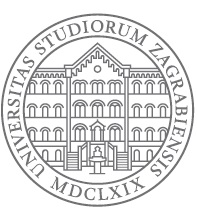| Sažetak | U vrijeme prosvjetiteljstva Europa konačno sabire svoja saznanja o novootkrivenom svijetu te među pitanjima koja daju odgovore za daljnji razvitak, postavljaju se i pitanja koja se tiču prošlosti. Prosvjetiteljska saznanja o prošlosti su temeljena na prestižnim ostatcima Rimskog Carstva počela su se propitivati otkrićem novog svijeta i primitivnih naroda koji su imali sličan civilizacijski napredak kao što su ga imali Rimljani. S ovim saznanjima Europljani počinju putovati u teško dostupna, zaraćena i nedovoljno istražena mjesta u Europi tražeći ostatke rimske kulture. U tim mjestima su naišli na primitivan narod koji je izazivao zgražanje u očima istraživača. Među tim istraživačima se našao i Alberto Fortis iz Padove, plemić koji je od malena slušao priče koje su kružile u salonima. U želji za znanjem i istraživanjem, zaredio se u augustinski red koji mu je omogućio visoko obrazovanje. U Dalmaciju odlazi istraživati više puta, dijelom privatnim sponzorstvom dijelom kao službenik Mletačke Republike. Na svojim putovanjima upoznaje Morlakete ih u svom djelu Put po Dalmaciji, opisuje svojom romantičarskom sklonošću. Morlakeostatku Europe predstavlja kao „dobre divljake“. Iako navodi da je svojim djelom želio pomoći tom narodu, stvorio je negativnu sliku o Morlacimakoja se dugo vremena održala. Na njegovo djelo, reagirao je Sinjanin Ivan Lovrić koji je u svojoj kritici pokušao ispraviti nepravdu koja je pogodila njegove sunarodnjake.Ivan Lovrić, prosvjetitelj, racionalist i liječnik obrazovan u Italiji, manje je poznat u hrvatskoj povijesti. Napisao je djelo Komentari o Putu po Dalmaciji opata Alberta Fortisa i život Stanislava Sočiviceu kojem kritizira djelo Alberta Fortisa. To djelo je izazvalo veliku kritiku među obrazovanim ljudima u zapadnoj Europi i na istočnojadranskoj obali na koju Lovrić nije mogao odgovoriti zbog svoje prerane smrti. Pod utjecajem kritike, ostaje zapamćen u historiografiji kao mladi, neuki, ljubomorni, senzibilni, morlački sin i kao referenca na Fortisovo djelo.Ovaj diplomski rad će se baviti komparacijom poglavlja O opisu Morlakakoje su napisali Fortis i Lovrić. Naglasak je na Lovrićevom pogledui reakciji na Fortisovo djelo, u kojoj autorne ublažavajući primitivnu realnost Morlaka, pokušava obraniti njihovu ljudskost. Dodatne analize Lovrićeva djela otkrivaju skrivenu poruku kojima se dokazuje prestižno podrijetlo Morlaka, zatrto dugotrajnim ratovima i nebrigom njihovih vladara. |
| Sažetak (engleski) | During The age of Enlightenment, scholars in Europe have started collecting and systemizing the knowledge about newly discovered world and formulating questions which will lead to further development, which rose questions about it's past.. The majority of historical information which was available and used by scholars of the age of the enlightenmentwas based on the scriptures and foundlings from the prestigious ruins of Roman Empire. Scholars then started to question their knowledge of underdeveloped, primitive people with minimal civilizational development that lived on the edge of the civilised world of that time, just as Romans had in their time. Due to new information Europeans organised expeditions to heavily accessible, warring and unknown places on borders of Europe, seeking remains of Roman culture. Upon arrival they stumbled upon people so primitive it left explorers stupefied. One of these explorers was Alberto Fortis from Padua, a nobleman who was raised listening to all the stories that circulated through the literary salons and coffeehouses, places where philosophers and scientists exchanged and discussed their ideas. With a passion for knowledge and exploring the unknown, Alberto later joined the Augustinian order where he received higher level education. He went several times to Dalmatia for research purposes. The trips were commissioned privately as well as by the Venetian Republic. On his journeys he met the Morlachs and in his work Viaggio in Dalmazia describes them with romanticizing tendencies. He represented Morlachs to the rest of the Europe as “noble savages”. Even though his true intention as to help those people, his work and research resulted in formation of negative perception of Morlachswhich was considered accurate for a long time. Ivan Lovrić from Sinj, reacted to his piece with critique, trying to correct injustice brought to his people.Ivan Lovrić was an esteemed rationalist in the Age of Enlightenment and medic educated in Italy, less known in Croatian historiography. He wrote Osservazioni di Giovani Lovrich sopra diversi pezzi del viaggio in Dalmazia del signor abate Alberto Fortis, coll’aggiunga della vita di Socivizcawhere he criticized Fortis’ work. This piece triggered huge criticism among educated people in Western Europe and on the east Adriatic coast, to which, because of his early death Lovrić unfortunately couldn’t respond. Under the influence of those critics,he will remain remembered in historiography as young, inexpert, jealous, sensitive, Morlachian son and as reference to Fortis’ piece. This master’s thesis will deal with comparation of chapter De costume de morlacchi written by both Fortis and Lovrić. The accent is on Lovrić’s point of view and reaction on Fortis’ work, in which, without lowering the primitive reality of the Morlach people, he tried to defend their humanity. Additional analyses of Lovrić’s piece uncover the hidden message which proves prestigious origins of Morlachs, wiped out by long-lasting wars and the negligence of their rulers. |


